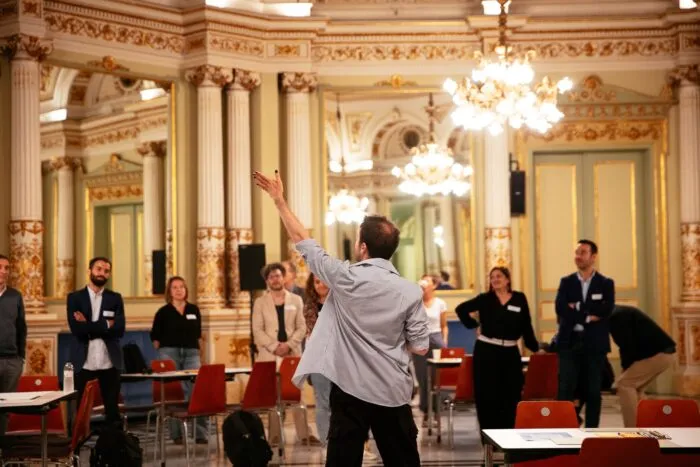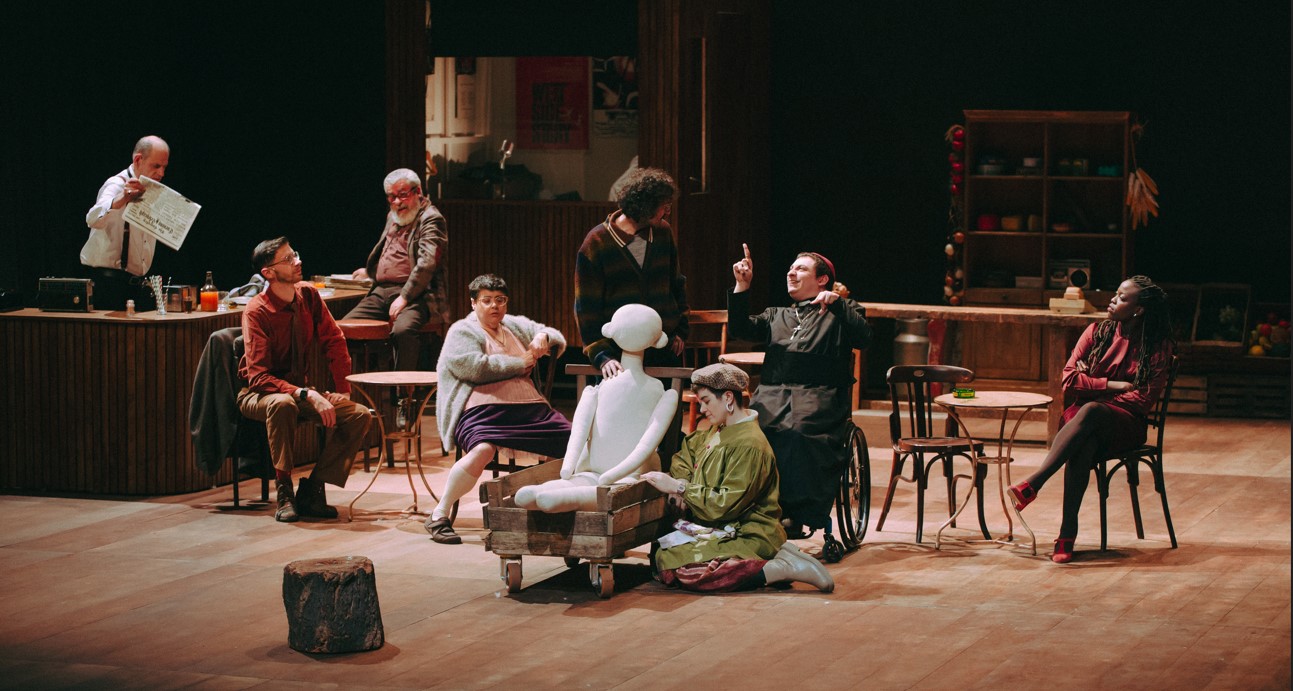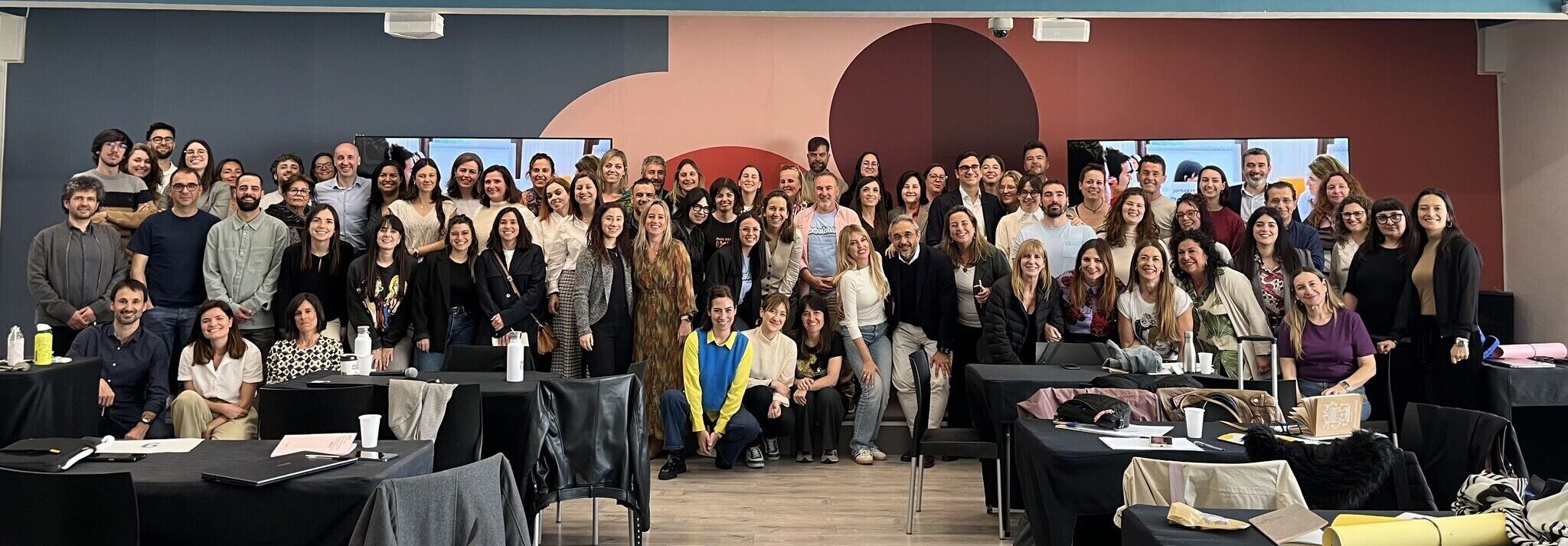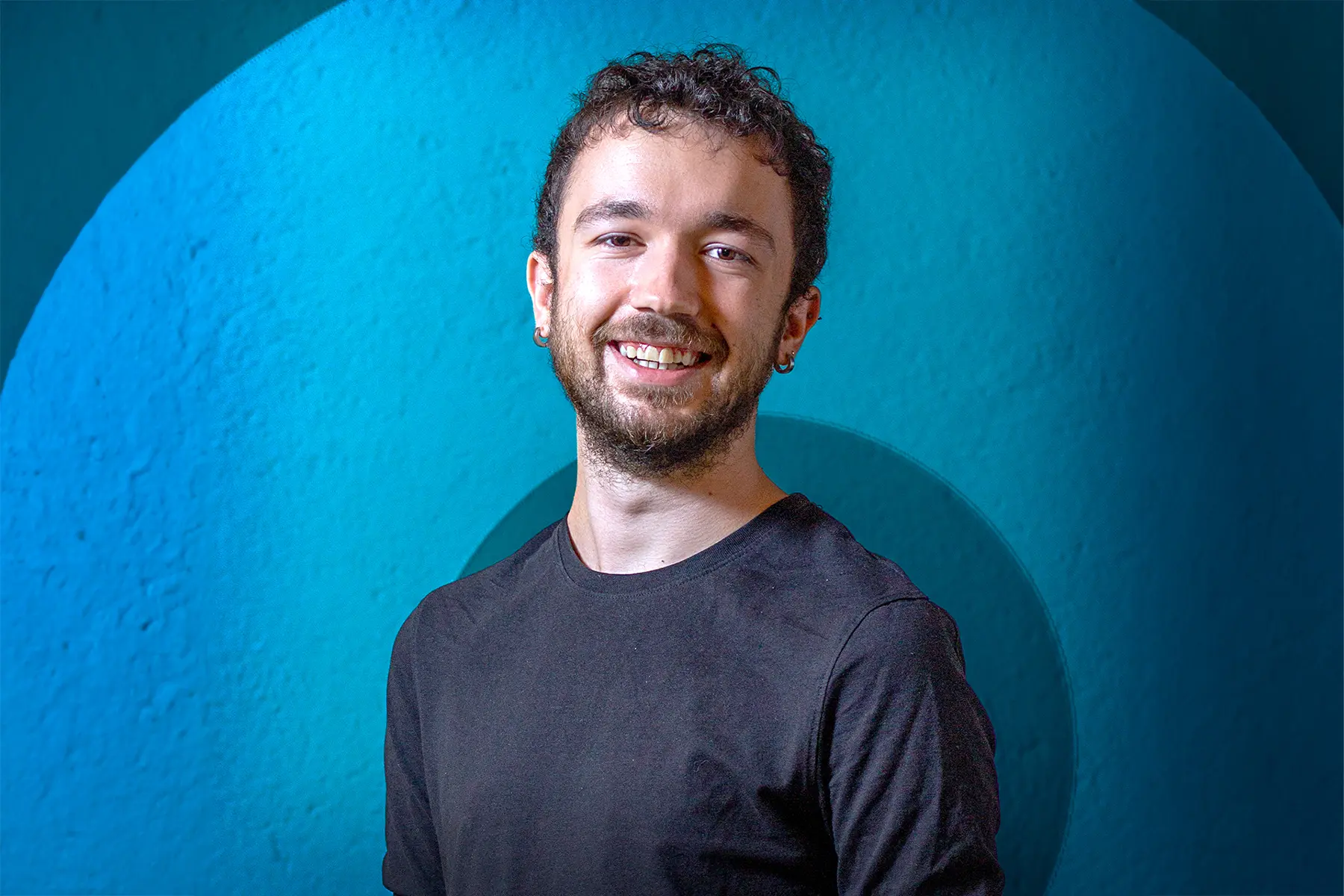
Kike Labián represents the voice of a generation of young artists working to reinvent and improve musical education in our country. And he does this from a pragmatic perspective, avoiding romanticism and nostalgia, convinced of art’s potential to serve as a tool to improve the world and of the capacity of young people to lead this change.
Kike is a percussionist, educator and speaker. He is Innovation tutor at the Reina Sofía School of Music, and he advises on social innovation projects such as Ashoka España or PuntoJES, among others. He also manages Kubbo, a performing arts and social innovation enterprise that creates artistic experiences to imagine better realities. Here at Banco Sabadell Foundation we collaborate with Kubbo through initiatives such as “La Movida”, a project that seeks to revolutionise artistic education by placing young people at the centre of the debate.
We talk to Kike about this project, about the role of young people as an engine for change, the role of institutions in these endeavours and the future of the cultural sector.
What was the motivation behind the decision to create Kubbo?
Kubbo began four years ago in a cafeteria with three people sitting around a table: Alber Rico, an educational psychologist and musician who had taken part in socio-educational innovation projects through Ashoka; Palmira Cardo, an artist from Mayumana and former colleague of mine from my percussion career, and myself.
We realised that the three of us shared an interest in the intersection between art and social transformation, but from very, very different perspectives. Alber from a background of activism and grass roots socio-communitarian intervention, Palmi from a performing arts company that was doing a season in Gran Vía at the time, and myself from a more conventional third-sector institutional perspective. And that’s when we saw something.
We were clear that we were not about to reinvent the wheel: there were already a lot of people doing cultural mediation in amazing ways, but we set ourselves the challenge of taking it mainstream. Can social innovation or transformative education take place in Gran Vía? The answer is not simply “yes, it can” but “yes, it must”. With this ambition at its core, albeit with some moral uncertainty, and in the form of this very artisanal institutional work, Kubbo was conceived.
We want what happens at the intersection between art and social transformation to be neither marginal nor alternative nor welfare-based. It should be core to our cultural sector.
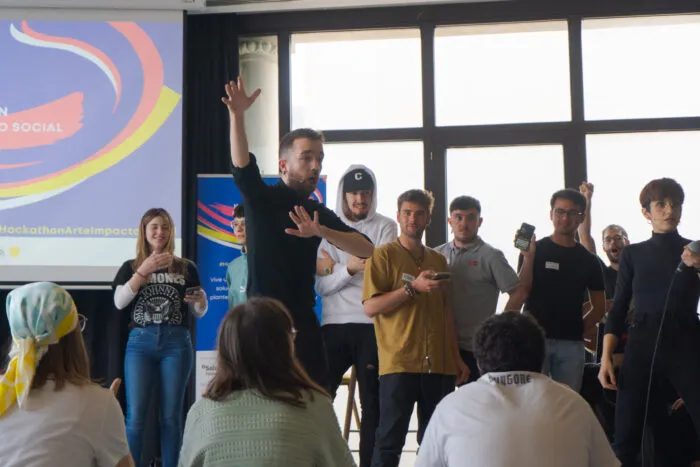
Young artists cope with a very difficult environment to fully dedicate themselves to their profession. What do you think are the main barriers that they face?
The first barrier is access. It think it is very important to remember that, as things stand today, it is not a universal right to study the arts. In my case, so that I could study at a conservatory, my father was fortunate to be able to work three evenings a week so that he could take me to the conservatory which was located thirty minutes away from our village. To say nothing of the cost of musical instruments, course fees, extra specialisation courses, etc.
On the other hand, once my training was finished, there was another problem: employability. According to case studies, more than 90% of graduates from higher conservatories are engaged in teaching, and only 5% go on to become performers. This is quite shocking. And we must be careful not to fall for the line that “education must be adapted to the demands of industry”. It is so lacking in ambition. Education has to change so that industry can change.
We need schools, conservatories and universities that look with a critical eye at orchestras and theatres and record labels, and that prepare their students with strategies to reinvent them. This kind of change is indeed systemic and long-term. But anything else means we simply indulge in nostalgia.
La Movida was created as a training and youth participation project to develop proposals for educational innovation in teaching the arts. Why do you believe we need to rethink artistic education?
Beyond structural considerations, there is a deep-rooted paradigm that we should take a look at: spaces for artistic education have been built with an individualistic industrial vision that divides people into creators and performers. Composers – musicians, playwrights – actors, choreographers – dancers. We have created a chain of factories for the arts. But look, we should not engage in demonising subject specialisation or start playing the blame game. It is what society needed at one time, but now we need to move on.
For me, urgency has arisen because, along the way, words that are badly needed today such as “creativity”, or even “imagination”, have been purged from the curriculum. I learned this when we started working on urban culture projects in highly vulnerable and academically disadvantaged environments. The youth there are years ahead of the curve. They reject disciplinary labels, they want to be artists – not musicians or dancers – they create, compose, rap, dance, improvise freestyle, do performance art, research, and more….
And I do not say this to romanticise the deprivation that has made them so inventive, but rather, as a wake-up call: if we open up our educational institutions to insights developing beyond our walls, perhaps we will discover that we do not need to innovate quite so much and that we would do better to self-innovate.
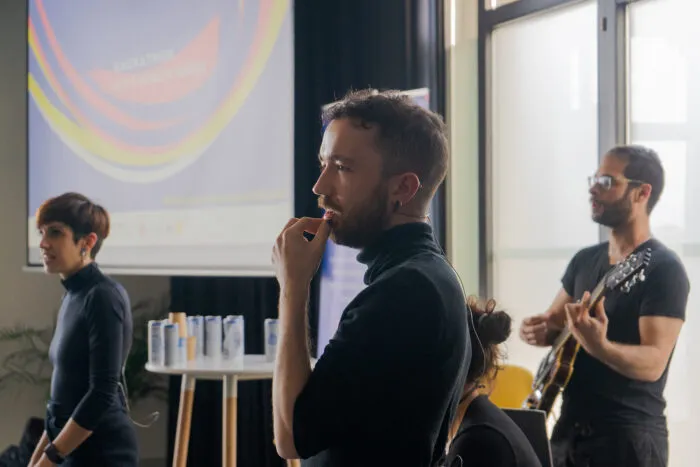
How do you think that institutions like Banco Sabadell Foundation can act as a lever for change to promote better realities for young artists?
First of all, by being an example. The fact that an institution working with young people hands over decision-making power to them is amazing. You can be and should be an inspiration to other institutions to open up their decision-making to other perspectives. Besides that, I can think of three key ways to support youth:
Firstly, resources. And I know that this is not very romantic, but it must be said. We are so tired of institutions that want to engage with young people, but without considering that the time, planning, work, trips, events and campaigns involved all require resources. Promoting youth is not a question of putting a young person on the round table at your annual event. Promoting youth is listening, taking on board their proposals and working with them to the point of including them in strategic actions. And of course, it is supporting the outcome of those proposals with resources.
On the other hand, there is the question of backing, which certainly helps us a lot. And here too let me be frank, having the backing of Banco Sabadell Foundation makes others more ready to hear and consider our proposals. And not just because we are young. The same would apply to any senior manager of any institution. They are listened to more attentively because of the organisation they represent. Institutions are not only places that receive proposals, they are also loudspeakers for citizens’ proposals.
Finally, it is an opportunity to make connections. You have mobilised major players in the ecosystem who have contributed their knowledge to the co-creative process to develop La Movida’s educational proposals, and that is fantastic. The potential that you bring to the table in the form of intangibles is enormous and I believe that much more needs to be said about that.
Speaking of imagining better realities, how do you imagine the future of the cultural sector?
Well look, I am going to be a bit simplistic – just in case some cultural manager reads this and steals my idea! Hopefully, the future of the cultural sector will be more fun. I don’t quite know what I have done, but for a couple of years I have had the feeling that I am now considered an “expert”. Suddenly, I find myself at round tables, conferences and meetings with senior managers who have decision-making powers. And I wish they would dance more. I have discovered a sector full of wonderful people (and I mean that most sincerely), confined by certain structures, who talk about “seriousness” as an eternally positive value. And that prevents them from innovating.
We speak about culture without practising culture, and let’s not fool ourselves: form is also substance. It is regrettable that our spaces for institutional thinking and outreach are events where 4 people speak, 30 listen and 70 stare at their mobile phones waiting for a moment in the corridor when they can hand over their contact details to someone who happened to add themselves to Linkedin 10 days earlier.
I remember a meeting that you organised a few months ago (at which, by the way, we danced quite a lot). At the end, an anonymous person left a post-it note with me, having written only the word “innocence” and, although it annoyed me a little to begin with, in time I realised that it was a great plan.
I imagine a future in the cultural sector where all of us who work in it can meet up speaking from a place of honesty, sharing, enjoying, caring, performing and making more art, and all of this without any fear or prejudice about “what people will say”. Oh yes, and if possible, entry to this party should be free – just imagine!
And if that is being innocent, well I am all for innocence! Right now, there are 150 young people in Spain and Latin America organising themselves in teams on a Discord gaming platform server called La Movida, planning informal gatherings because they want to get to know each other in person, all in the tremendously innocent belief that we are going to transform artistic education.
And I think it is awesome, because we will do it.
